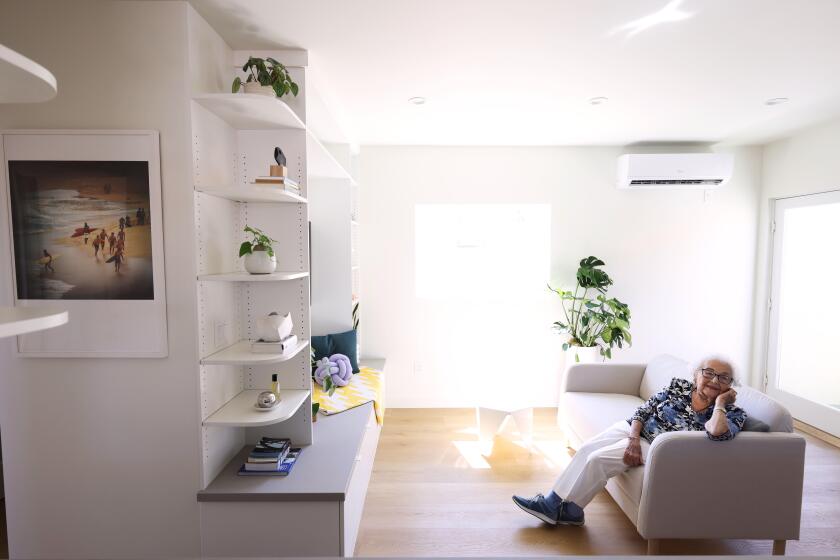Law Would Broaden Preservation Powers : Landmarks: The ordinance will allow the City Council to designate a home or building a historic site, even if the owner objects. It will be put to a vote Feb. 5.
The South Pasadena City Council last week cleared the way for the finishing touches to be put on a controversial ordinance that has fueled a struggle between preservationists and property-rights advocates.
The final measure, which will be voted on Feb. 5, would broaden the powers of the cityâs Cultural Heritage Commission to designate and protect historical landmarks and districts in South Pasadena. It will provide that the five-member commission could recommend to the council that a single home or building be designated a historical landmark even if the owner opposes the action.
The council voted unanimously to have the city attorney rewrite the proposal into a final draft for the Feb. 5 vote, even though council members James Hodge and James Woollacott had objected to portions of the ordinance, saying homeowners deserve a choice.
Mayor Amedee Richards and council members Evelyn Fierro and Harry Knapp backed the measure as presented last week.
âTo my knowledge, no one has ever been forced to have his location put on the register,â Richards said. âYou have to rely on the good judgment of the commission and the council.â
Proponents say such unilateral decisions are necessary to preserve South Pasadenaâs historic housing. A survey commissioned by the city has identified about 2,400 potentially historic structures.
Critics say the proposal could abridge property rights because owners of homes designated as landmarks would have to get commission approval for any additions or significant exterior renovations.
Hodge said he feared that the proposal could lead to a backlash against the council from property owners who donât want their houses selected as historical landmarks.
The proposal also provides for formation of historic districts, with majority approval from affected property owners. Homes in a district would be under the same requirements as individual homes deemed historic.
Hodge and Woollacott lobbied unsuccessfully for a 60% margin of property owner approval.
Final approval of historic status for homes or districts would rest with the City Council.
More to Read
Sign up for Essential California
The most important California stories and recommendations in your inbox every morning.
You may occasionally receive promotional content from the Los Angeles Times.










